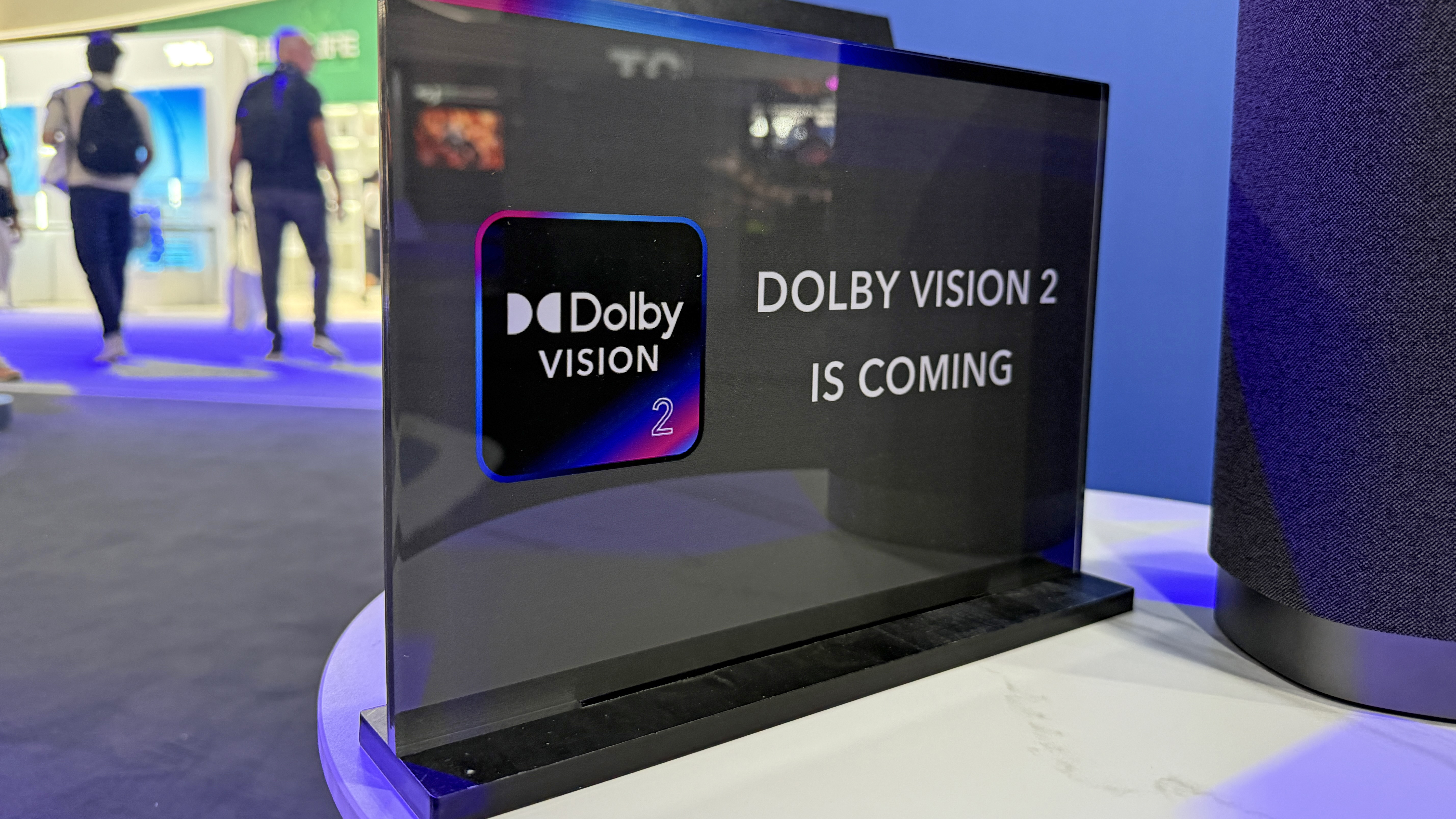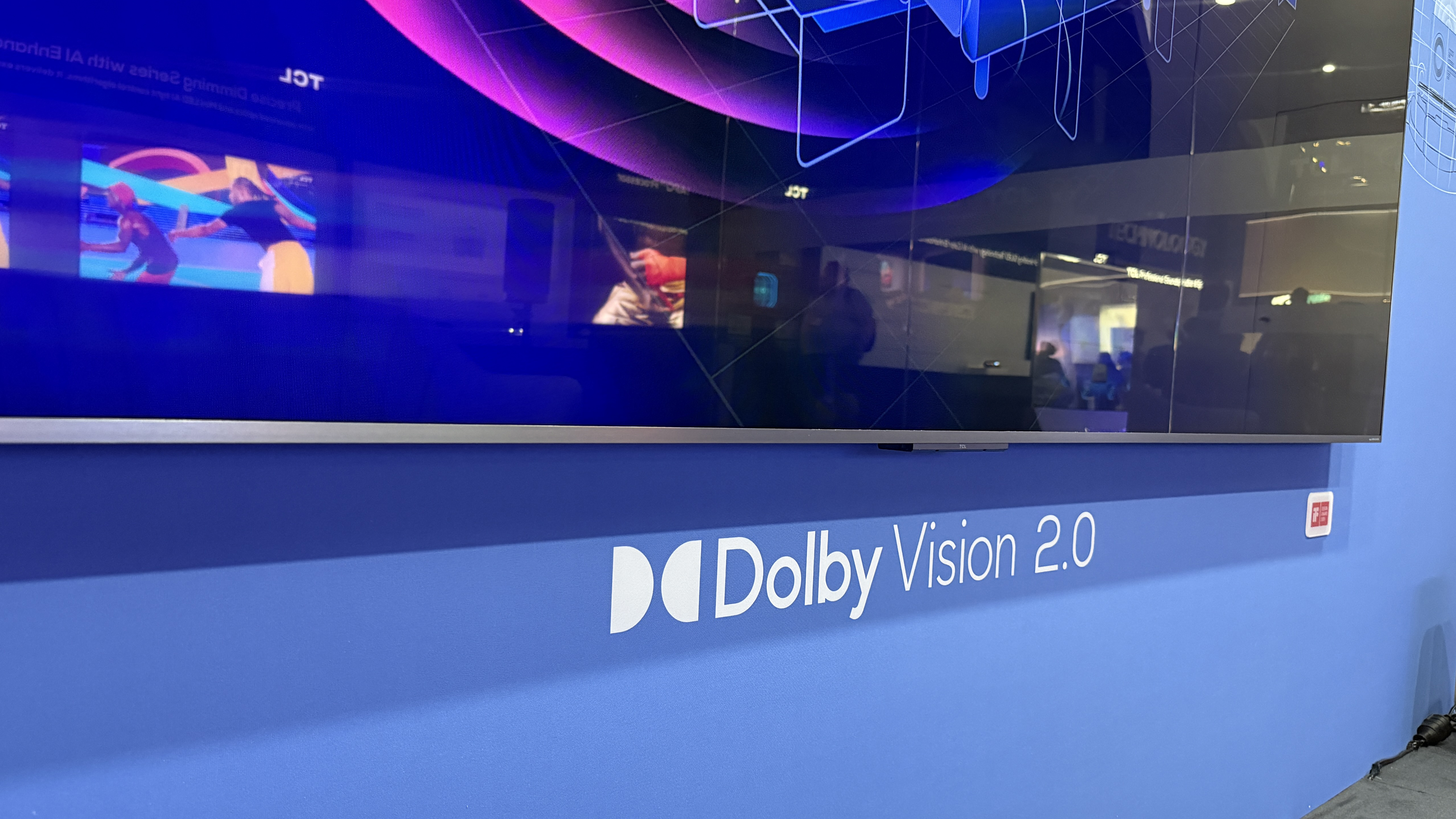Which TV makers will support Dolby Vision 2 next-gen HDR? I asked the big manufacturers, and it's a mixed bag
And here's the deal with upgrading old TVs, too

Updated 12 September 2025: Samsung provided an official response on potential support for Dolby Vision 2, and it wasn't a 'no'!
Updated 10 September 2025: LG contacted TechRadar to update its stance on Dolby Vision 2 – the rest of this article remains as originally written.
This week, ahead of IFA 2025, Dolby announced Dolby Vision 2, the next-gen version of its advanced HDR format. It comes in two flavors: Dolby Vision 2, and Dolby Vision 2 Max, which adds even more picture-quality enhancement, and will only be supported on TVs that meet certain performance benchmarks as certified by Dolby.
Obviously, the big question is which TVs will support it, and whether current TVs might be updated with it, if they're have the right specs.
So we approached the makers of the best TVs for official comment, and spoke to people in the industry to get the behind the scenes view. For the most part, the TV makers are being cagey about it, but we have some concrete responses, and some more unofficial information from those in the know.
Which TV makers will support Dolby Vision?
Hisense
Let's start with Hisense, because it's the official launch partner with Dolby for Dolby Vision 2. It's confirmed that at least a small portion of its current elite TVs, including the Hisense UX116 RGB mini-LED TV (which we recently tested) will have support. Exactly how many current TVs will be updated is unclear, but I'd expect the focus to be more on its inclusion in future TVs.
LG
Update: LG contacted TechRadar with an update to its stance on Dolby Vision 2. "We are evaluating the opportunity and remain committed to delivering exceptional viewing experiences,” says Baik Seon-pill, head of Product Planning Division at the LG Media Solution Company.
Sign up for breaking news, reviews, opinion, top tech deals, and more.
This is a notable change from the original stance, which said: "We currently do not have plans to support Dolby Vision 2 HDR." While the new position is far from a confirmation, it leaves the door open for Dolby Vision 2 support.
LG also previously told us: "Our understanding is an upgrade (any brand) is not possible as Dolby Vision 2 improvements are hardware related, not just software."
I'll come back to that comment about upgrading existing TVs later, because it doesn't appear to be accurate (as you can maybe guess from Hisense's plans).
Samsung
Update: Samsung has offered an official statement about Dolby Vision 2, and it's a lot more ambiguous than I expected. A Samsung spokesperson said: "As more content supports both [HDR10] and Dolby simultaneously, consumers now have the flexibility to choose. We are reviewing how we can further support this environment."
This is a bit of a surprise. Samsung had always been hard against Dolby Vision in the past, and my understanding from speaking to people in the industry was that it wasn't planning to change its long-standing stance on HDR10+ being its only choice.
So this statement is intriguingly open. I wonder if Samsung is actually considering whether Dolby Vision 2 Max's motion control settings and bi-directional tone-mapping might actually be worth supporting. Or maybe it's just being polite and still has no plans.
TCL
TCL also didn't provide an official response to the question of Dolby Vision 2 support, but there was a subtle hint about its stance on its stand at IFA. See if you can spot it in this image.

My understanding is that if Dolby Vision 2 picks up support among the key streamers, we should expect it to arrive on TCL’s future TVs without much delay.
Sony
Sony told me: "Dolby is one of our important partners. Our current TVs are compatible with Dolby Vision and Atmos. So are we in discussion with Dolby? Yes, but at the moment we don't really have a clear statement to make about Dolby Vision 2."
More to come…
Several other TV makers didn't respond by the time of writing, and I wasn't able to get any hints from around the industry about their plans.
What about updating existing TVs?
I've tried to dig into LG's statement about upgrading not being possible, and it seems that perhaps there's some confusion. Dolby declined to respond to this claim officially, but my understanding from discussions with people in the industry is that it should be theoretically possible to upgrade some existing TVs, but it's a small list, and it's still not 100% straightforward.
LG's statement that Dolby Vision 2 requires a hardware upgrade appears to be true, but the hardware in question is built into MediaTek's Pentonic 800 processor for TVs, which is already used in several TVs available to buy today (including from Hisense, unsurprisingly). As you've just read above, Hisense has plans to add support to at least one existing TV that uses that MediaTek chip.
But it also seems possible that even if a TV uses that chip, there could be some other part of its specification or performance that would block Dolby Vision 2 certification, so having the chip doesn't guarantee anything. And the chip is only in a limited number of TVs, all released within the last six months.
However, even beyond whether it's technically possible to upgrade existing TVs, there's also the question of motivation. One TV industry insider I spoke to said that even if TV's can be upgraded, we generally shouldn't expect TV makers to put in the time, money and effort when there's no Dolby Vision 2 content available, and we don't when that content will arrive.
Reading between the lines, I'm also guessing that there's a financial element – TV makers would prefer for you to buy a new set to get Dolby Vision 2, I expect.
Which is a bit of a shame, because it would be great to have Dolby Vision 2 on cheaper TVs especially, since it's an impressive upgrade on budget screens.
You might also like
- I saw the first RGB TV that you'll be able to buy at a remotely realistic size, and it's a real OLED rival
- I've never been into the art TV craze, but TCL's ultra-low power 85-inch digital canvas could change my mind
- The VisionMaster Max 4K projector promises 'unrivaled black level performance', and there's a matching wireless 5.1.2-channel Dolby Atmos sound system

Matt is TechRadar's Managing Editor for Entertainment, meaning he's in charge of persuading our team of writers and reviewers to watch the latest TV shows and movies on gorgeous TVs and listen to fantastic speakers and headphones. It's a tough task, as you can imagine. Matt has over a decade of experience in tech publishing, and previously ran the TV & audio coverage for our colleagues at T3.com, and before that he edited T3 magazine. During his career, he's also contributed to places as varied as Creative Bloq, PC Gamer, PetsRadar, MacLife, and Edge. TV and movie nerdism is his speciality, and he goes to the cinema three times a week. He's always happy to explain the virtues of Dolby Vision over a drink, but he might need to use props, like he's explaining the offside rule.
You must confirm your public display name before commenting
Please logout and then login again, you will then be prompted to enter your display name.